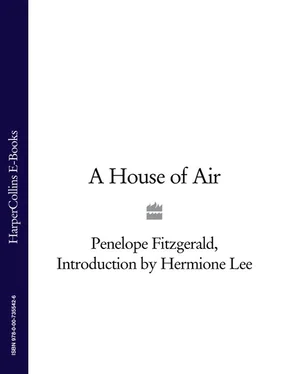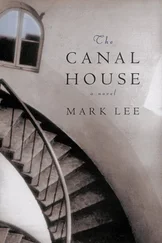In his Notebooks Coleridge is a witness, often deeply remorseful, to his own life, creating a double viewpoint. Holmes is perfectly attuned to this, and in addition creates what he calls a ‘downstage voice’ in his footnotes, ‘reflecting on the action as it develops.’ Anything less than this would not represent the multiplicity of STC. This often unexpected downstage commentary is particularly valuable when Holmes comes to discuss the Biographia Literaria , which Coleridge wrote while he was with the Morgans and which he described to Byron as ‘a general Preface’ to his collected poems, ‘on the Principles of philosophic and genial criticism relative to the Fine Arts in general; but especially to Poetry.’ In fact, it began as a dialogue, or rather an argument at a distance, with Wordsworth. But that was not enough. He had much more to say on his own personal philosophical journey from the materialism of Locke to the perception that faith in God is not only beyond reason but a continuation of it. He produced forty-five thousand words in six weeks, anxiously watched by the faithful Morgan. Hard pressed, he borrowed passages wholesale from the German philosopher Friedrich Schelling. Holmes admits the plagiarism, but you can rely on him for a spirited defence. The plagiarisms, he claims, ‘form a kind of psychodrama within the heart of the Biographia .’ We have to wait for the true Coleridge to free himself and emerge.
Coleridge’s last years were spent in Highgate, then a hill village just north of London, with the humane Dr James Gillman and his motherly wife, Ann. Gillman regulated the opium taking, tactfully overlooking the extra supplies secretly bought from the local chemist, and arranged for Coleridge something quite new, holidays by the seaside. The Gillmans’ fine house and garden was a retreat where he could receive visitors—Thomas Carlyle, Ralph Waldo Emerson, James Fenimore Cooper. A familiar figure by now in the village, Coleridge, looking twenty years older than he was, had become a ‘white-haired, shuffling sage,’ walking, according to young John Keats, like an after-dinner alderman but, as he talked, casting the same enchantment still.
‘At 6.30 a.m. on 25 July 1834 he slipped into the dark.’ I could wish that Richard Holmes hadn’t felt that here, at the very end, ‘dark’ was the right word. But it’s impossible to describe the extraordinary quality of this biography, felt on every page. ‘There is a particular kind of silence which falls after a life like Coleridge’s,’ Holmes says, ‘and perhaps it should be observed.’
New York Times Book Review, 1999
SARAH ORNE JEWETT The News from Dunnet Landing
Sarah Orne Jewett: Novels and Stories , edited by Michael Davitt Bell
The author of the novel The Country of the Pointed Firs , Sarah Orne Jewett, born in 1849, was widely read at the turn of the century, much less after the First World War. Now that a selection of her works is in the Library of America series, perhaps she will be read again.
Sarah Orne Jewett was a New Englander, descended from a well-to-do merchant family in South Berwick, Maine. Her father was a doctor with a local practice (although he later became Professor of Obstetrics at Bowdoin), and she was brought up as one of an extended family in the ‘great house’ of her grandfather Jewett in South Berwick. It was a place of hospitality where she could listen to the stories told at leisure by visitors, among them superannuated sea captains and ship owners and relatives from the lonely inland farms.
As a child she was not a great scholar, preferring hopscotch and skating and her collections of woodchucks, turtles, and insects. ‘In those days,’ she wrote, ‘I was given to long childish illnesses, to instant drooping if ever I were shut up in school,’ so that her father, trusting in fresh air as a cure, took her with him on his daily rounds, teaching her at the same time to keep her eyes open, and telling her the names of plants and animals. He recommended her to read (in her teens) Sterne’s Sentimental Journey , Milton’s L’Allegro , and the poetry of Tennyson and Matthew Arnold. Her mother and grandmother advised Pride and Prejudice , George Eliot’s Scenes of Clerical Life , and Harriet Beecher Stowe’s Pearl of Orr’s Island .
In 1867, Jewett graduated from Berwick Academy with serious thoughts of studying medicine. The echo of her debate with herself can be heard in her novel A Country Doctor (1884). Nancy Price, ‘not a commonplace girl,’ has been left alone in the world. Her guardian is the beloved country practitioner Dr Leslie, whose principle is ‘to work with nature and not against it.’ He believes the wild, reckless little girl is born to be a doctor, and he turns out to be right. Although on a visit away from home she meets a young lawyer to whom she is in every way suited, she gives him up. In the face of criticism from nearly everyone in her small-town community, she goes back to her medical training.
Jewett herself never had to face the test of society’s disapproval. She gave up the idea of becoming a doctor simply because she was not well enough. Rheumatism became a familiar enemy, tormenting her all her life long. A legacy from her grandfather meant that she would never have to earn a living, and she decided against marriage, perhaps because she felt she was not likely to meet anyone to match her father. But her writing, which had begun with small things—stories for young people, occasional poems, and so forth—had become by 1873 ‘my work—my business, perhaps; and it is so much better than making a mere amusement of it, as I used to.’
Like so many great invalids of the nineteenth century, Jewett continued, with amazing fortitude, to travel, to make new friends, to move according to the seasons from one house to another. Wherever she went she answered letters in the morning and wrote in the afternoons. For twenty years she spent the summer and winter months with Mrs Annie Fields (it was one of those close friendships known as ‘Boston marriages’) and spring and autumn in ‘the great house’ in South Berwick, making time, however, for trips to Europe to meet pretty well everyone she admired. In July 1889 she visited Alice Longfellow (the daughter of the poet) at Mouse Island, in Boothbay Harbor, Maine. This was her first visit to the district of the ‘pointed firs.’ She made several more before 1896, when her novel The Country of the Pointed Firs appeared, first as a serial in The Atlantic Monthly and then in November from the publisher Houghton Mifflin.
This short novel is her masterpiece, no doubt about that, but it is difficult to discuss the plot because it can hardly be said to have one. Dunnet Landing is ‘a salt-aired, white-clapboarded little town’ on the central coast of Maine, more attractive than the rest, perhaps, but much like them. ‘One evening in June, a single passenger landed upon the steamboat wharf.’ She is a writer who has taken a lodging in the town, in search of peace and quiet. Her landlady, Mrs Almira Todd, is the local herbalist, being a very large person, majestic almost, living in the last little house on the way inland. In a few pages Jewett establishes forever the substantial reality of Dunnet Landing. We know it, we have been there, we have walked up the steep streets, we taste the sea air. Now we have got to get to know the inhabitants, slowly, as the narrator does herself, and, in good time, to hear their confidences. Jewett knew all about fishing and small-holding and cooking haddock chowder, about birds, weather, tides, and clouds. She had a wonderful ear for the Maine voice, breaking the immense silences. She quotes, more than once, what her father said to her: ‘Don’t write about things and people. Tell them just as they are.’ And she understood the natural history of small communities, where you will find impoverished, lonely people, often old but proud, self-respecting and respected.
Читать дальше












